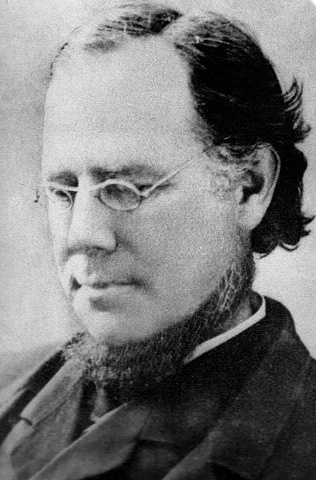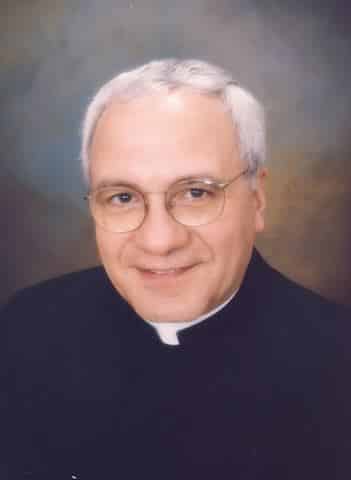May 7, 2012
This is the third in a series of previously unpublished reflections from the 1854 spiritual notebook of Paulist Founder, Servant of God Father Isaac T. Hecker. The reflection series is being made public in conjunction with Father Hecker’s cause for canonization.
Missionary
A reflection from Isaac Hecker’s 1854 spiritual notebook
How shall we preach and act apostolically? This is the question for us Redemptorists to settle. By living apostolically; by abandoning ourselves as the Apostles did to the guidance of the Holy Spirit; by renouncing the world and taking up the cross and preaching Jesus and Him crucified. The cross of Christ alone is more than sufficient to redeem the world. The Apostles made use of nothing else. It was their theology, philosophy, rhetoric and science.
As the prophet Isaiah says, “I am the Lord your God: I teach you for your own advantage and lead you in the way you must go.” (Isaiah 48:17) “Behold, See how I have tested you not as silver is tested but in the furnace of affliction, there I purified you.”(Isaiah 48:10) In the vocation of our Lord, that the prophet predicted, that our Lord would send us just as he was sent by His Father. But how shall we be able to say to those who are bound, “Come forth!” And to those who are in darkness, “Show yourselves” (Isaiah 49:9)?
It is in the extreme desolation of the soul and the infirmities of our bodies that God tries and proves us. If we are found not to be wanting, only then does God reveal to us his secrets and makes us coworkers in the work of redemption. Rejoice that you are in the furnace of affliction for you are the disciples of Him who affliction never abandoned but even mounted the Cross with Him. It is in this furnace that you enter as men and leave as apostles of Christ, heralds of the Gospel and saviors of humanity.
Response: Father Frank DeSiano, CSP
How telling that Isaac Hecker raises for his Redemptorist brothers the question of how they will preach and act apostolically. It seems that being apostolic, being missionary, always takes a special perspective, a special bit of energy and, as Hecker shows us in these paragraphs, a special spirituality.
Hecker ends up inviting his brother Redemptorist preachers to look their weakness, needs, and insufficiencies to find the power of mission in their lives. “Rejoice that you are in the furnace of affliction,” since it is in the faithfulness we have, in our weakness, that the Holy Spirit most clearly comes. These, indeed, are sober words, particularly to us today, who always tend to think that mission comes from strength, competence, well-financed resources and confidence. And sober words for Americans who tend to think that the Gospel always comes in jolly triumph.
Hecker invites us to the cross. There Redemptorists should find the energy for their apostolic preaching. There, in our utter need for God in the Spirit, Hecker invites his Paulist descendants to go for our power of mission. When we have nowhere to go but to God, purified and refined, then the Spirit can transform.
Paulist Father Frank DeSiano is a noted Catholic evangelist and president of Paulist Evangelization Ministries (formerly PNCA). He was the fourth president of the Paulist Fathers and therefore the fifteenth successor to Father Hecker.
About Father Isaac Hecker’s 1854 Spiritual Notebook:
Servant of God, Father Isaac Hecker wrote these spiritual notes as a young Redemptorist priest about 1854 and they have never been published. Hecker was 34 years old at the time, and had been ordained a priest for five years. He loved his work as a Catholic evangelist. The Redemptorist mission band had expanded out of the New York state area to the south and west, and the band’s national reputation grew. Hecker had begun to focus his attention on Protestants who came out to hear them. To this purpose Hecker began to write in 1854 his invitation to Protestant America to consider the Catholic Church, “Questions of the Soul” which would make him a national figure in the American church.
Hecker collected and organized these notes that include writings and stories from St. Alphonsus Liguori, the Jesuit spiritual writer Louis Lallemant and his disciple Jean Surin, the German mystic John Tauler, St. Thomas Aquinas and St. Jane de Chantal among others. These notes were a resource for retreat work and spiritual direction and show Hecker’s growing proficiency in traditional Catholic spirituality some ten years after his conversion to the Catholic faith. They are composed of short thematic reflections.

